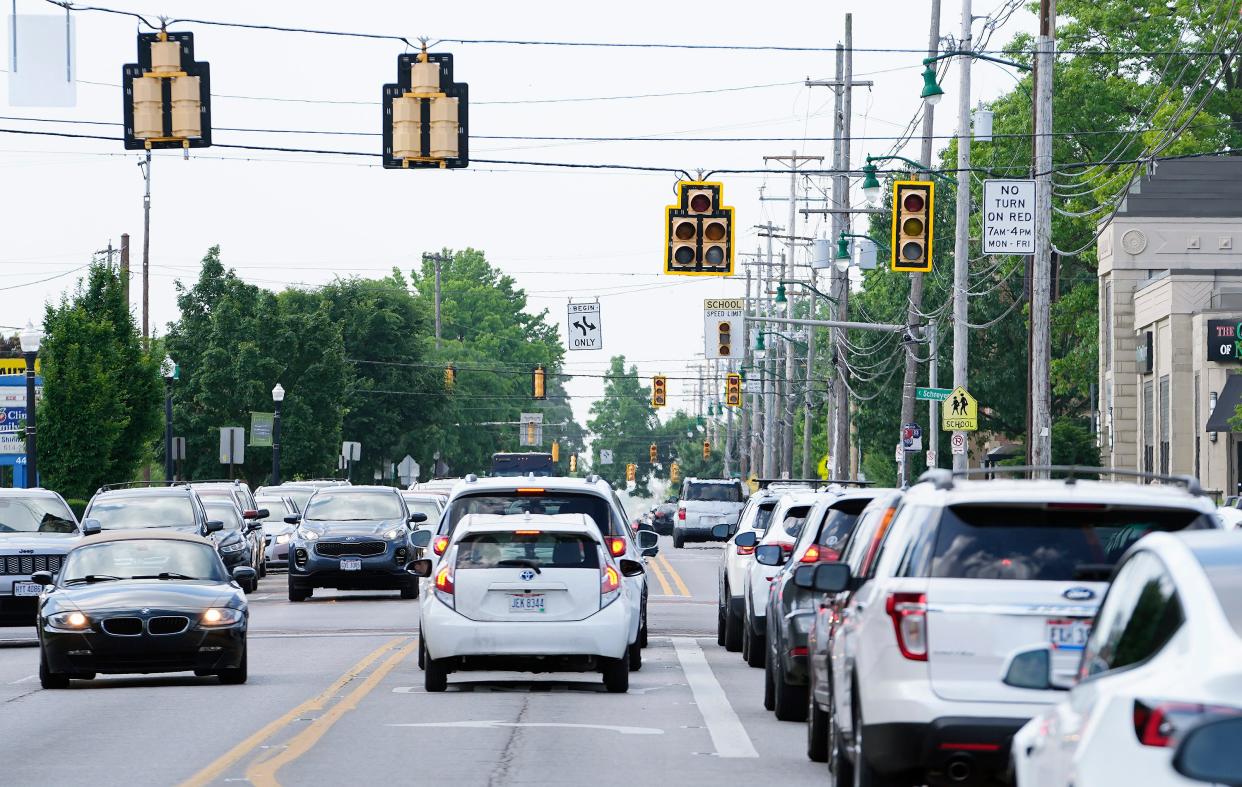Johnson: A summer of hardship ahead

This is a column by Athens native, Jessica Johnson, a lecturer at The Ohio State University's Lima campus. She is a regular contributor to the Athens Banner-Herald.
The summer of 2022 is turning out to be one of great hardship for many across the nation due to the extreme heat and storms, along with the overwhelming challenge of adjusting to rising gas and food prices. There is hardly any wiggle room financially for moderate and low-income families, and those who are homeless are facing a crisis of epic proportions.
Roughly a week ago, damage from thunderstorms in Columbus, Ohio, caused power outages, and the soaring temperatures further aggravated the problem. AEP Ohio provides electricity to much of the central region of the state, and the company decided to shut off power in certain areas because of lines overloading not only due to the aftermath of storms but also increased energy usage as a result of the heat.
More from Jessica Johnson: Commemorate the persistent faith by an oppressed people this Juneteenth
In an email to NBC4 in Columbus, a spokesperson for PJM Interconnection, a transmission organization whose electric grid supplies many AEP customers, explained that AEP was "(directed) to lower flows across the overloaded lines by reducing electricity load."
Unfortunately, many low-income communities in Columbus were seriously impacted by this decision and were not notified in advance, which caused frustration and outrage from local leaders. It wasn't just the danger of being in darkness for a few days that drew the ire of people in these vicinities. Much of the concern was voiced for those who are chronically ill and depend on refrigeration for their medications and those on fixed incomes whose food spoiled while their power was out.
This week, AEP provided $2.7 million to eligible customers who were affected by the outages through credits from their Neighbor to Neighbor Program. The funds range from $350 to $500 and will be directly applied to electricity bills. Additional aid has been supplied through Columbus' IMPACT Community Action, a nonprofit organization that is giving $250 Kroger gift cards to help people replace food they lost, but the demand is so great that supplies may run out.
Many who need help are still receiving it, but seeing the extremely long lines outside of IMPACT's building on the news is disheartening. It's a stark reminder of the suffering around us, and that major cities like Columbus must now seriously evaluate future policy decisions to upgrade its electrical grid. A disturbing fact is that the power lines in many of the city's low-income areas are outdated and could potentially overload after the next big storm.
While loss of electricity in Columbus had adverse consequences and was in some cases life-threatening, many who are homeless remain in dire situations. A homeless camp in Columbus' Heer Park area was recently removed. Police were on the scene as crews used bulldozers to clean up traces of the camp, and people packed what little belongings they had.
Removing them will not solve the housing crisis because they will find another place to go. According to results from a January 2020 census conducted by Columbus' Community Shelter Board, 2,036 people were homeless in the city, which included 1,470 in shelters. Only 134 were in transitional housing, while 432 were still unsheltered. Many homeless people do not trust shelters due to theft and contagious diseases.
Still living in the shadow of the COVID-19 pandemic only intensifies these fears, but Columbus is taking key steps to address this issue. Last year, Columbus Mayor Andrew J. Ginther announced that $9 million would be allocated for central Ohio shelters, with emergency shelters receiving $1.87 million of these funds that will go toward cleaning services and more staff. Funds for training more mental health specialists in housing programs totaled $4.9 million. Hopefully, the Community Shelter Board numbers will begin to decrease with this additional financial support.
More from Jessica A. Johnson: Celebrating Black Music Month this June
I am fortunate to live in Reynoldsburg, Ohio, a suburban community in Columbus that is considered upscale, but destitution is still evident on the periphery in this section of town. I occasionally see homeless people holding cardboard signs and asking for money when I fill up my gas tank for an excessive $60.
Yet I know shelling out extra cash to maintain transportation is a minor hassle compared to what they are going through, and I have a better understanding of why Scripture instructs us to be "content" with what we are blessed to have (Hebrews 13:5).

I think about the plight of those on the streets, along with others who are struggling in these difficult times, and I pray for God's grace to cover them. They will need it to make it through this grueling summer.
This article originally appeared on Athens Banner-Herald: Johnson: A summer of hardship ahead

